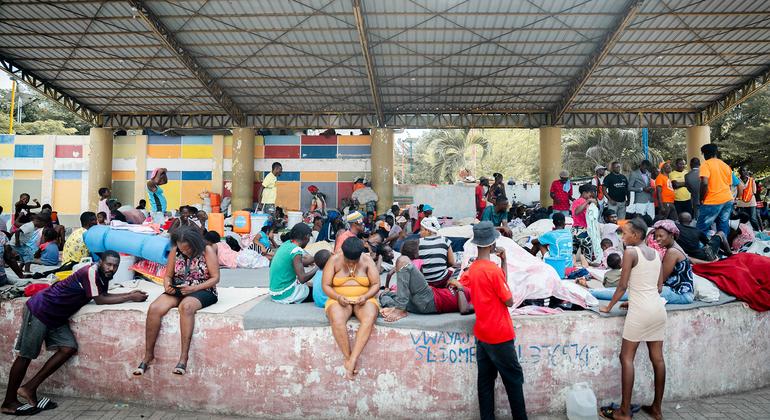The recent report released by UN Women sheds light on the dire living conditions and lack of security faced by approximately 300,000 displaced women and girls in Haiti. These individuals are enduring these challenging circumstances amidst ongoing political instability, escalating gang violence, and the looming threat of the current hurricane season.
According to the UN Women Rapid Gender Assessment, women and girls make up more than half of the 580,000 displaced individuals in Haiti. The assessment highlights how the makeshift camps these women and girls are residing in lack basic necessities, leaving them particularly vulnerable to sexual and gender-based violence. The survey was conducted in April in the six most populated and diverse displacement sites in the capital city of Port-au-Prince.
The findings of the assessment are alarming. Many of the camps have inadequate lighting and lack locks in crucial areas such as bedrooms and toilets, leaving residents exposed to daily threats from gangs. The constant danger of stray bullets and other security risks further emphasizes the urgent need for improved protection in these sites. The report also reveals that aggression against women and girls, including rape, is being used as a deliberate tactic to control their access to humanitarian assistance in most camps.
UN Women Executive Director, Sima Bahous, expressed deep concern over the level of insecurity and brutality, particularly the unprecedented sexual violence that women in Haiti are facing at the hands of gangs. She called for immediate action from the newly appointed government to prevent and respond to the violence against women and girls, as well as increase women’s participation in the management of the camps to address their security concerns effectively. Bahous emphasized the importance of distributing humanitarian aid safely in accordance with the specific needs of women and girls.
The report also uncovered that nearly 90 percent of women interviewed in the camps have no source of income. Shockingly, more than 10 percent admitted to considering or engaging in sex work or prostitution to meet their needs, while 20 percent knew someone who had done the same. Additionally, 16 percent of respondents reported feeling intimidated, harassed, or traumatized by armed gangs, and nearly 70 percent said they were mentally affected by the upsurge in violence. Only 10 percent reported having access to health services in the camps.
In response to the crisis in Haiti, UN Women is actively supporting women’s organizations to reach displaced individuals within host communities and camps. Projects are being implemented with the assistance of the UN Women’s Peace and Humanitarian Fund, the UN Peacebuilding Fund, and the German Government. The agency is also training police officers to enhance the prevention of sexual and gender-based violence and provide services to survivors. Furthermore, UN Women continues to support women entrepreneurs who are facing challenges due to road blockages and the ongoing crisis.
The situation in Haiti is dire, with displaced women and girls facing numerous challenges and threats to their safety and well-being. Urgent action is needed to address the insecurity and violence they are experiencing and to ensure their access to essential services and support. UN Women is working tirelessly to provide assistance and protection to these vulnerable populations and calls on the international community to join in these efforts to alleviate the suffering of those affected by the crisis in Haiti.









